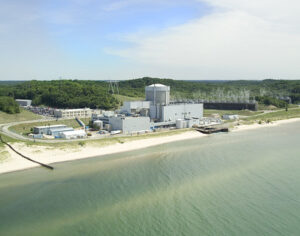If you need to understand more about the impact of the decisions by the WCC Board of Trustees to approve a $33M managed IT services contract, or the insane spending on executives at WCC, here’s something to think about. In 2024, Washtenaw County residents were assessed about $76,367,500 in property taxes for WCC. That’s a 7% increase over the 2023 WCC assessment, which was about $71,351,600.
You have to agree that a 7% raise is pretty nice, as long as you don’t ask yourself where that money actually came from.
According to the US Census Bureau, one-third of the housing units in the City of Ypsilanti are owner-occupied. When you own a house in Michigan, your property tax rate is capped at either the rate of inflation or 5%, whichever is lower. That cap kicks in when you buy the house and stays in place as long as the house remains your primary residence.
On the flip side, any residential property that is not owner-occupied does not have a cap on its property taxes. Instead, the State Equalized Value (SEV) of a residential rental property is the primary determinant of a non-owner-occupied residence.
So, if one-third of residences in the City of Ypsilanti are owner-occupied, then two-thirds of the residential properties are rentals. Property tax increases drive rent increases, so renters don’t really get the same break that homeowners get when it comes to property tax increases. Depending on a host of factors, some renters may be able to reclaim some of their rent payments through their income tax refunds, but not all renters are eligible, and not all eligible renters file for the credit.
Respect the taxpayer by spending property taxes carefully
If you think that property taxes and rising rents are an Ypsilanti problem, you should also note that Ann Arbor’s owner-occupied housing rate is about 43%, which means that 57% of Ann Arbor housing units are rentals. Like Ypsilanti’s renters, Ann Arbor’s renters are also subject to rising rents driven by uncapped property tax increases on the housing they rent. SEV’s in the City of Ann Arbor (which are uncapped valuations) rose by 36% between 2003 and 2023. Over the same period, the SEVs of Ypsilanti’s residential properties rose by 9%.
A significant portion of WCC’s $5M increase in property tax revenues comes not from owner-occupied housing units where the state’s property tax cap holds increases artificially low. Instead, much of these “extra” revenues come from renters living in housing units whose property taxes are never capped.
In the eyes of many WCC executives, this $5M increase is proof positive that they work in a “rich community.” (Most of them don’t live in Washtenaw County.) In reality, four out of ten Washtenaw County households live near or below the poverty line, and half or more of WCC’s revenue increase came from the households in Washtenaw County who can least afford to provide it.
Photo Credit: RikkisRefuge Other, via Flickr

















